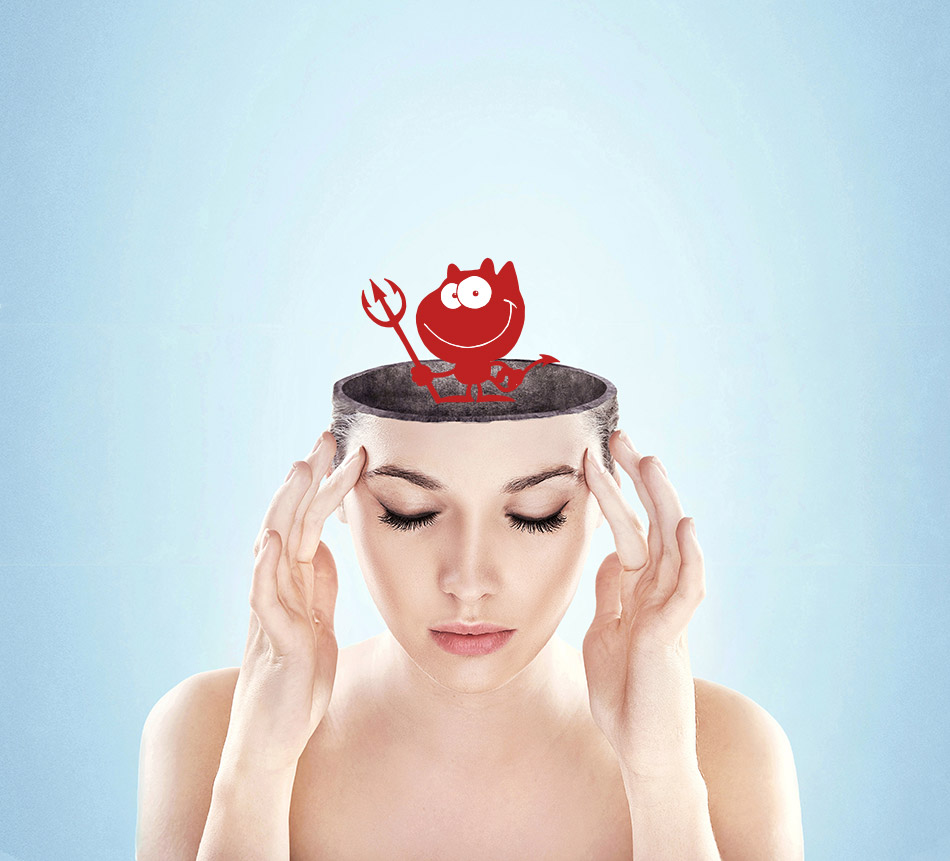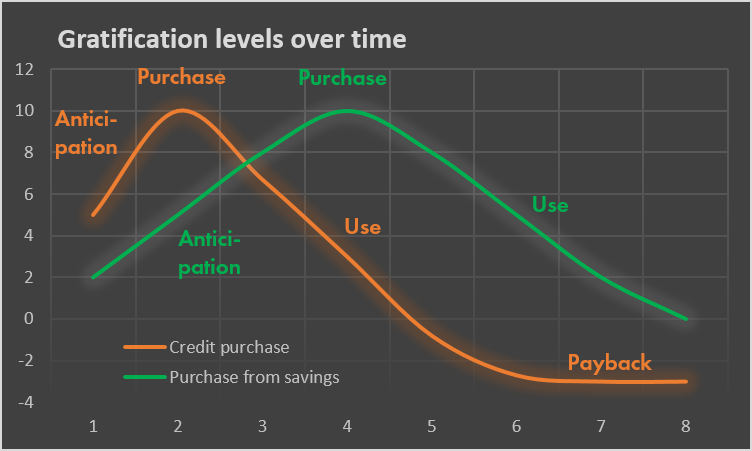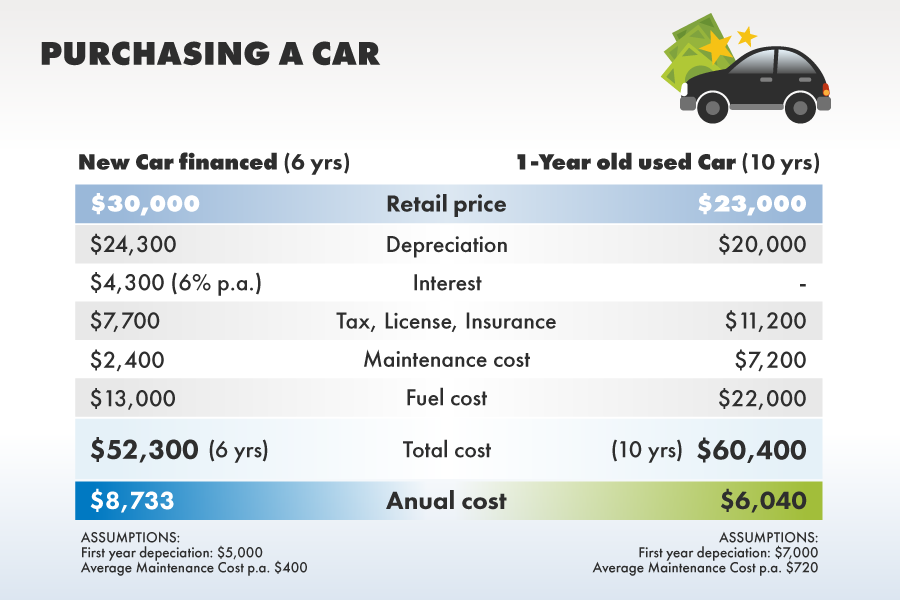This website is providing you with many ideas and practical examples to make it happen in your personal life.

In the cover story, we have delivered a rather sobering message for those expecting the past to continue forever: economic growth is already absent for most, and more economic limits are coming our way. Finally, we are getting to the upbeat part: Shaping our lives in a way that we do no longer need growth to be happy.
Look around
If as a reader, you don't belong to a household of the lowest income bracket, take an honest look around you, you are likely to see a lot of things that you don't truly "need" to be happy. Be it the latest version of your smartphone, the second car in the driveway, those extra bedrooms that are empty most of the year, all the gadgets in the kitchen, or those many toys in the kids' rooms. And how many of the clothes in your closet have you actually worn during the past 12 months? If it’s more than half, you’re already doing very well. You most probably agree.

Now there is another part of us –a little person inside us - who strongly disagrees with this point of view. He is small and can silently get grumpy if our neighbor has that new shiny car in the driveway or if the family across the street tells us about the great vacation in a fancier resort than the one we went to. And she can also become very hooked on the latest smartphone, that 70" TV or the new sneakers her favorite singer wore for the Grammy award ceremony, even though last year's purchases would serve us just fine.
But, when we finally get these things, he/she briefly becomes very excited and happy on that flash of rising dopamine levels in the brain, only to want something else soon after, once the novelty has worn off.
That little person in our head, capable of throwing toddler-like temper tantrums that can overpower our rational thinking, is one of the key reasons why we are running on such a high level of consumption, why we “have to have” so many things. On an evolutionary level, it has a lot in common with why male peacocks have those beautiful feathers. They are utterly unnecessary, but demonstrate health and excess (food) resources; and are therefore important ways to show that we are good at finding food and defending our territory. In our modern times of excess resource availability from fossil fuels, that aspiration for “more” has gone into spinning mode, burning rubber rather than providing traction. But by consuming way beyond our needs, we still satisfy that old urge to demonstrate status and comparative fitness.
With a "world of less" likely in front of us, we have to give this little person in our head new directions, or he/she will be grumpy all the time, seducing us to make more bad decisions, or find scapegoats to blame. But how does that work? Below, we will provide a few examples that not only reduce long-term financial burdens but also provide the same or an even larger amount of happiness compared to the lifestyle that has evolved over the past century. It follows three key principles:
- Evaluate "true need" vs. "want" before buying something, even if you can afford it. Be proud of it.
- Avoid credit and “pay later” options wherever you can. Enjoy your purchases without remorse.
- Find rewards without a huge cost to your wallet and resource use. You will be loved.
Redefine "need" vs. "want"
When did you buy your last cell phone? Your current car? Was it because the old one was broken beyond repair, or because a new(er) version promised features your previous one didn't have? Were these features really required? And that last gadget, garment or accessory that made it into your collection - was that a purchase that mostly made you feel good in the very moment, or a true necessity that has made a change to your everyday life ever since?
If you take a step back on all these things and are honest with yourself, you probably, in many cases, will have to admit that a true need wasn't the driver behind a majority of purchases, but rather "want." And, if you manage to take another further step back on the subject, you will soon recognize that many "needs" are "wants in disguise." If you're not sure, take our Wants and Needs Test (coming soon). And if you're in "want" territory, think again, and wait another day, or find an alternative way to get yourself that dopamine kick. And never, to lead to the next principle, never buy "wants" on credit. Believe us; you feel as rewarded once you get hooked on the feeling of not having spent money on something useless.
Avoid credit whenever possible

Whatever "want" you buy on credit has two disadvantages: in most cases, the joy of the moment is long gone by the time you are done paying off your debt. Further, credit inevitably makes buying something more expensive compared to a cash purchase, because someone wants to be compensated for lending you money and often also wants to take advantage of your impulse to have it right now. We don't say credit is always wrong; there are situations where its careful use can enable things that truly benefit you and your family, for example when buying a house. Or, in a difficult situation, credit can help secure necessities, cover true "needs," and bridge gaps. With our Credit Test, you can soon find out how you are doing.
When buying stuff with cash you have already earned, even if it's something "unnecessary," that dopamine burst of being rewarded is, we promise, much bigger compared to the one that is burdened by the nagging feeling that this purchase will require paying off way into the future.
Find rewards outside of the "stuff" world

What we as humans seek in most of our "unnecessary" purchases and gifts to others is the rise in dopamine, a neurotransmitter that lightens our mood and makes us happier. The same goes for our kids when they get their 500th toy. This is why a mall visit is also called "shopping therapy." If we want to give up on that habit, we have to find different ways. And the fun part is: how you feel mostly depends on the targets you're defining. If you decide that your goal is to avoid many "wants" in the future, your brain is capable of turning a victory over your impulse, that little toddler in your brain, into a high dopamine kick giving you a broad smile.
Did you know that hiding a little love note under your significant other's pillow creates the same positive dopamine rush for both of you than an expensive surprise present? Did you know that children are usually happier after you spend time with them doing a self-designed treasure hunt in the garden, a nearby park or a forest, compared to a visit to a theme park? There are many ways to get those dopamine levels up without spending a dime or wasting many natural resources, and we will soon bring those ideas to you in our Living with Less Wizard" Please follow our site on Twitter or Facebook to find out when it is up.
Big purchases: Resource- and wallet-friendly

Nowadays, most people don't buy, they finance or lease, the first place that adds more cost compared to a cash purchase. This starts with a significant down-payment and subsequent monthly installments, typically for 48 to 72 months. After that, they return the car or trade it for a newer model. Mostly, the end of that financing cycle by no means is equal to the end of life for the vehicle. Typically, if there is no accident totaling a car prematurely, it can last 20 years or more, depending on brand, maintenance, and miles driven.
When it comes to truly relevant features like safety and comfort, a 10-year-old vehicle doesn't lack anything major compared to a brand new one. There might be a few gadgets missing, and you can't run it on “autopilot” while watching a movie on the back seat (which you shouldn't be doing anyway), but other than that, it’s perfectly fine and safe to drive. So if you buy a new or almost new car next time using your savings with the intent of keeping it for 12 years, you will save a lot of money. In our example, using very conservative assumptions about maintenance cost, the savings amount to 30% every year.
The same applies to your next cell phone. There are a ways to both save money and resources without giving up on anything important on functionality and style.
Ask politicians to stop promising growth
One of the biggest problems we are currently facing is the reluctance of politicians to accept that something has fundamentally changed, and to keep promising that their particular policy recipe will bring growth back for all of us. To our knowledge, there isn't any relevant policymaker who openly admits that we might have reached the end of the ladder and that we should get ready to scale back to lower wealth levels- which by the way will still be close to the highest in human history. Not even the new anti-establishment politicians that spring up on either side of the political spectrum are presenting that message, but instead tell us that their unique approach will bring back growth for all of us. Unfortunately, they would be facing the same problems; their approaches just haven't been tested yet.
So please tell your representatives and senators to look into that new reality of "less," and ask them to start planning for it, instead of creating a world of missed promises, blame, and conflict that is formed by their desire to hold on to an unachievable target.
However, it is important to know that most politicians haven’t chosen to ignore this because they are mean or stupid, they do this because they think that you, their voters, want to hear a message that involves the word "growth." It might be upon you to tell them that this is not the case and that you instead would prefer a good life where society isn't torn apart by the conflict emerging from a futile attempt at obtaining more and more every year.

